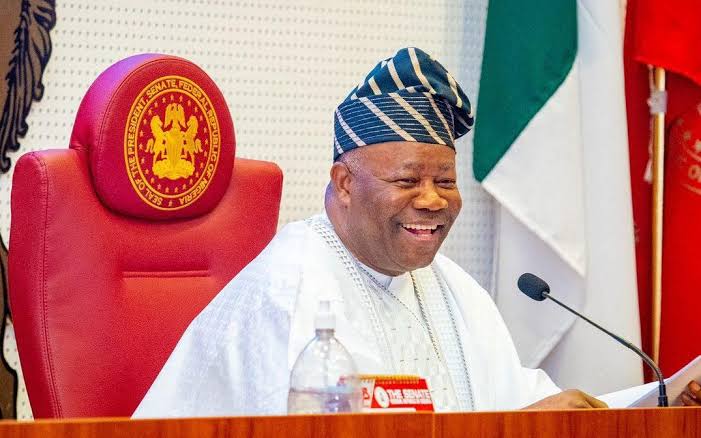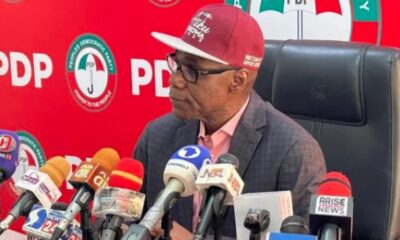By Sufuyan Ojeifo
History, in its long and patient arc, is a master storyteller. Its finest tales often begin with conflict rather than applause, with accusation rather than acclaim. Before the garlands and the gratitude, there is the crucible, the fire through which greatness is tested and purified.
The recent wave of false accusations against Nigeria’s Senate President, Senator Godswill Obot Akpabio, belongs to this ancient pattern.
Far from diminishing him, they place him squarely in the historical company of giants like Socrates, Mansa Musa, Patrice Lumumba, and Nelson Mandela, whose trials became the prelude to vindication.
In every civilisation, those who dared to challenge convention were first rewarded with suspicion. Socrates, the Athenian philosopher, was condemned in 399 BC on the charge of corrupting the youth and defying the gods.
Whereas, his true offence was the audacity to question the complacency of his city. He unsettled the powerful and embarrassed the comfortable. The state silenced him, but not his truth.
Today, the same Athens that sentenced him to death has his statue in its squares, while his false accusers are completely forgotten, condemned by history to nothing more than an ignoble footnote.
Socrates’ calm dignity before false judgement still echoes across millennia, a reminder that time is the ultimate judge of moral worth. Akpabio’s silence in the face of lies carries the same wisdom: that one does not wrestle with shadows when history itself is one’s witness.
Nigeria’s Senate President now finds himself walking a road well-travelled by men whose lives became lessons in perseverance. Like Socrates, Akpabio has been accused not because he has failed his people but because he has dared to lead differently.
Indeed, his reforms, his capacity to command loyalty, and his influence in both national and regional politics have unsettled old networks of privilege. Yet his focus remains unwavering, on legislation that strengthens governance, on national stability, and on the quiet labour of statecraft. In a country often distracted by noise, Akpabio embodies the rare discipline of purpose.
In another era, across the deserts of the Sahara, Mansa Musa of Mali experienced a similar misunderstanding. When he embarked on his legendary pilgrimage to Mecca, he displayed the wealth of his empire with generosity that startled the medieval world.
To some, it was extravagance. To history, it became evidence of unmatched vision. His empire flourished through learning, commerce, and faith. His name still shines centuries later, unblemished by the gossip of his age. Likewise, those who misread Akpabio’s grand development strides mistake ambition for arrogance. They fail to see that behind the public works and the national projects lies the spirit of reconstruction, a man rebuilding systems, not just seeking applause.
Patrice Lumumba’s ordeal in the 20th century brought the tragedy of false accusation to its most brutal form. The first Prime Minister of an independent Congo was accused of sowing division and branded an extremist. As the world now knows, his crime was clarity, the insistence that Africa’s freedom must not be dictated by foreign powers. His enemies silenced his voice but could not extinguish his vision.
Today, Lumumba’s name inspires every generation that seeks to reclaim African dignity. The same pattern of vilification, born of fear and envy, trails every reformer. When Senator Akpabio’s detractors peddle falsehoods, they reveal more about their own insecurity than about his record. It is the familiar resistance of the old against the birth of the new.
South Africa’s long night under apartheid produced another target of defamation: Nelson Mandela. For decades, he was called a terrorist and enemy of the state. Yet, in his quiet cell, he found the strength to forgive those who condemned him. When he emerged, he transformed his nation without bitterness. His victory was not only political; it was also moral, a triumph of the human spirit over injustice. Mandela’s story teaches that the mightiest response to falsehood is patience.
Without claiming a direct similarity of their situations, Senator Akpabio’s restraint, his refusal to engage in personal recrimination, reflects Mandela’s lived philosophy; that true leaders answer falsehood with performance, not theatrics.
It is tempting to view each accusation against Akpabio in isolation as a passing political quarrel. Yet to do so would be to miss the deeper rhythm of history. Great leaders are not defined by what is said about them in the heat of their time, but by what is remembered of them when the noise has faded.
The allegations that swirl around Akpabio today are not evidence of guilt but signs of significance. Insignificant men are not worth defaming. As the musician 2Baba once sang, “If nobody talks about you, then you are nobody.” The very ferocity of the attacks against Senator Akpabio is proof of his stature and the disruptive power of his vision.
Reflecting on this lineage of misunderstood greatness, one sees that accusation is often the final refuge of the threatened. Akpabio’s career, from transforming Akwa Ibom State into a model of modern governance to repositioning the Senate as a stabilising institution, represents a continuity of purpose that even his critics cannot deny.
Akpabio has brought maturity to national politics, forged collaboration across divides, and demonstrated that leadership can be firm without being fractious. His calm under pressure and his devotion to national unity have become the quiet pillars of Nigeria’s democratic consolidation.
Clearly, these attacks are not the measure of the man but the echo of his impact. The history of leadership is littered with names once maligned and later sanctified. Socrates’ trial became the cornerstone of philosophy. Mansa Musa’s misunderstood generosity defined a golden age. Lumumba’s persecution gave Africa a martyr. Mandela’s imprisonment forged a moral compass for humanity. Senator Godswill Akpabio stands among them, a contemporary figure walking through the same furnace of falsehood towards the same horizon of vindication.
To see Akpabio merely as a politician under attack is to miss the larger story unfolding. His journey is a lesson in patience, endurance, and the power of moral steadiness in the face of hysteria. As Nigeria searches for stability and renewal, Akpabio’s conduct offers something rarer than rhetoric: a model of composed leadership that refuses to be baited into bitterness, let alone the flitting satisfaction of viral outrage. He is writing, through action rather than argument, a chapter that future historians will read with admiration.
The crucible of false accusation, then, is his initiation into greatness. Every great leader must pass through the fog of misunderstandings before emerging into the sunlight of vindication. For Senator Akpabio, that sunlight is inevitable. When the passions of the present have cooled, and the record of reform stands tall against the smallness of slander, Nigeria will see him for what he truly is, a nation builder tested by fire, a visionary misunderstood in his own time but destined for vindication in the fullness of history.
Posterity, which has already cleared the names of Socrates, Mansa Musa, Lumumba, and Mandela, will do the same for the Uncommon Transformer. For in the grand tribunal of time, truth always wins its appeal.
● Sufuyan Ojeifo is the publisher and editor-in-chief of THE CONCLAVE online newspaper.
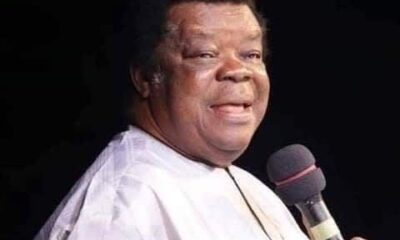
 News3 weeks ago
News3 weeks ago
 Features4 weeks ago
Features4 weeks ago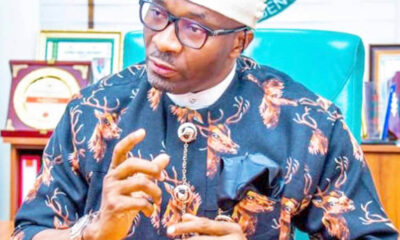
 News3 days ago
News3 days ago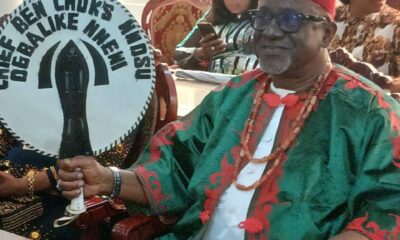
 Features5 days ago
Features5 days ago
 News2 weeks ago
News2 weeks ago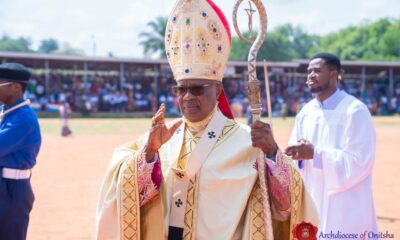
 Uncategorized2 weeks ago
Uncategorized2 weeks ago
 News4 weeks ago
News4 weeks ago
 Entertainment2 weeks ago
Entertainment2 weeks ago

